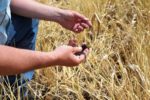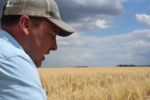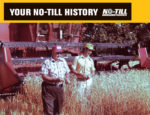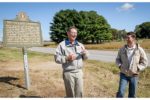Advertise Follow Us
Articles by Katie Pratt
Wheat spreads out workload & provides ideal time for field repairs in “No-Till Capital of the World”
Read More
No-Till 101
2022 US Census of Agriculture Reports Increase in No-Till Acres, Decrease in Conservation Tillage
Among the wins for conservation reported in the most recent U.S. Census of Agriculture was a 17% increase in cover-cropped acres.
Read More
Farmer Feature
Timely Moisture, Fertility Win Yield Contests for First Generation No-Tiller
Corn & wheat yield contest winner finds patience & power of observation put him in position to make smart management changes.
Read More
Wheat Yield Contest Winners Willing to Take Risks
The intense management required to raise grains for distilleries & human consumption pushes generational no-tillers to explore new practices.
Read More
Use Cover Crops to Complement Herbicide Program & Combat Resistant Weeds
Studies show grass cover crops reduce weed biomass by 68%, with covers reducing 65% of winter annual weeds & 46% of summer annual weeds.
Read More
No-Tillers Find Success with Diverse Crop Rotations
Efficiency and input reduction lead Brian and Jamie Johnson to continually try new ideas on their 1,700-acre operation that includes more than a half-dozen crops.
Read More













